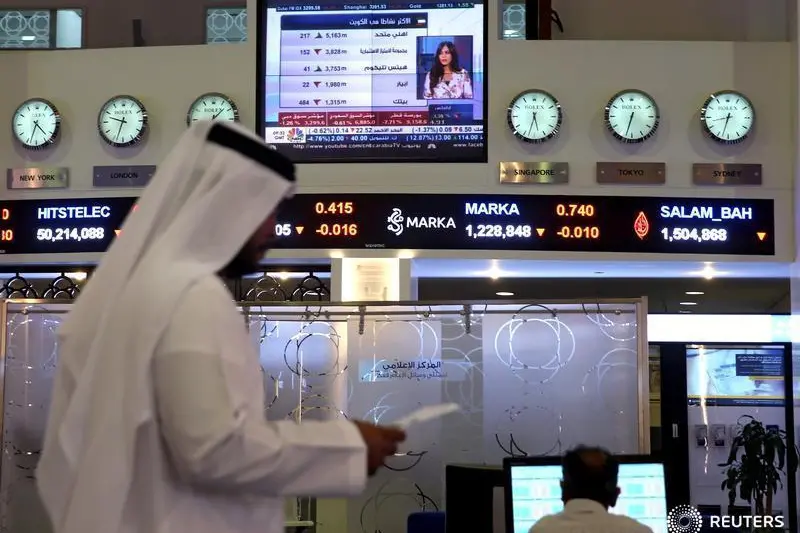PHOTO
Most stock markets in the Gulf rose on Monday, led by the Saudi index closing at its highest since August 2022, despite fading chances of early rate cuts globally.
U.S. producer prices increased more than expected in January after strong gains in the cost of services that could stoke inflation. Most Gulf Cooperation Council countries, including the United Arab Emirates (UAE), peg their currencies to the U.S. dollar and follow the Fed's policy moves closely.
Saudi Arabia's benchmark index gained 0.7%, rising for a thirteenth consecutive session, led by a 3.5% rise in ACWA Power. The Saudi Stock Exchange and Saudi regulator the Capital Market Authority are reviewing more than 57 initial public offering (IPO) requests for the exchange and Saudi Parallel Market, Saudi Tadawul Group CEO Khalid Alhussan told Al Arabiya TV on Monday.
The Qatari benchmark finished 0.9% higher, with Qatar Islamic Bank rising 2.3% and Islamic lender Masraf Al Rayan increased 3.8%. Dubai's main share index added 0.3%, driven by a 1.7% rise in top lender Emirates NBD.
The Dubai stock market, which has reached record highs, could remain on an uptrend as business activity supports robust performance expectations, Yousef Ayoub, head of sales at NCM, said, while adding traders would monitor ongoing geopolitical risks.
In Abu Dhabi, the index eased 0.2%. Global oil benchmark Brent crude was little changed, hovering around $83 a barrel as continued conflict in the Middle East and the risk of supply disruption offset doubts about demand. Outside the Gulf, Egypt's blue-chip index advanced 1.1%, with Talaat Mostafa Holding jumping 6.8%.
- SAUDI ARABIA rose 0.7% to 12,595
- ABU DHABI fell 0.2% to 9,410
- DUBAI added 0.3% to 4,273
- QATAR gained 0.9% to 10,300
- EGYPT rose 1.1% to 29,452
- BAHRAIN was flat at 2,051
- OMAN eased 0.2% to 4,630
- KUWAIT gained 0.8% to 8,061
(Reporting by Ateeq Shariff in Bengaluru; editing by Barbara Lewis)




















